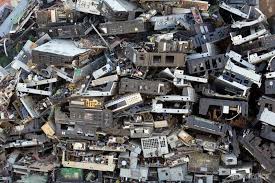Post Date: 2015-03-21

UPV / EHU researcher Andoni Salbidegoitia, using discarded electronic boards, has collaborated with international researchers to develop a system for obtaining clean hydrogen that can be used as fuel. Researchers have patented the process in Japan.
The environmentally sustainable chemical technology (TQSA) group of the UPV / EHU Institute of Science and Technology's Department of Chemical Engineering aims to use waste plastic as efficiently as possible from an environmental, energy, and economic perspective.
Plastic is a petroleum-based product, so it should not be viewed as a waste product, but as a source of raw materials and available energy. Researcher Andoni Salbidegoitia is developing alternative methods for treating the most difficult-to-handle plastic waste, either because of its ingredients or because it is very expensive to separate because of its mixing with other substances.
Using e-waste to clean hydrogen
During his research at the National Institute of Advanced Industrial Science and Technology in Japan, Salbidegoitia participated in a study that was awarded a patent for a clean hydrogenation process that can be used as a fuel by using waste electronic components obtained by Today, plastic waste from electronic components in developed countries has grown exponentially. These wastes require special treatment because they contain many very valuable metals and can also be recycled. In this process, steam is used to treat the waste, and the metal present in the waste acts as a catalyst and obtains gaseous hydrogen under certain conditions: a fuel that is forming, but its main problem is to store it.
This gasification process can be used on an industrial level and has been completely solved. Salbidegoitia explained that, in fact, Japan "gasification of plastic waste has been deployed at the industrial level". In order to be able to use it here, in addition to making economic investments, one must also study how and where to use the obtained fuel products. "
 0
0












 Login/Register
Login/Register
 BOM
BOM
 Cart
Cart

